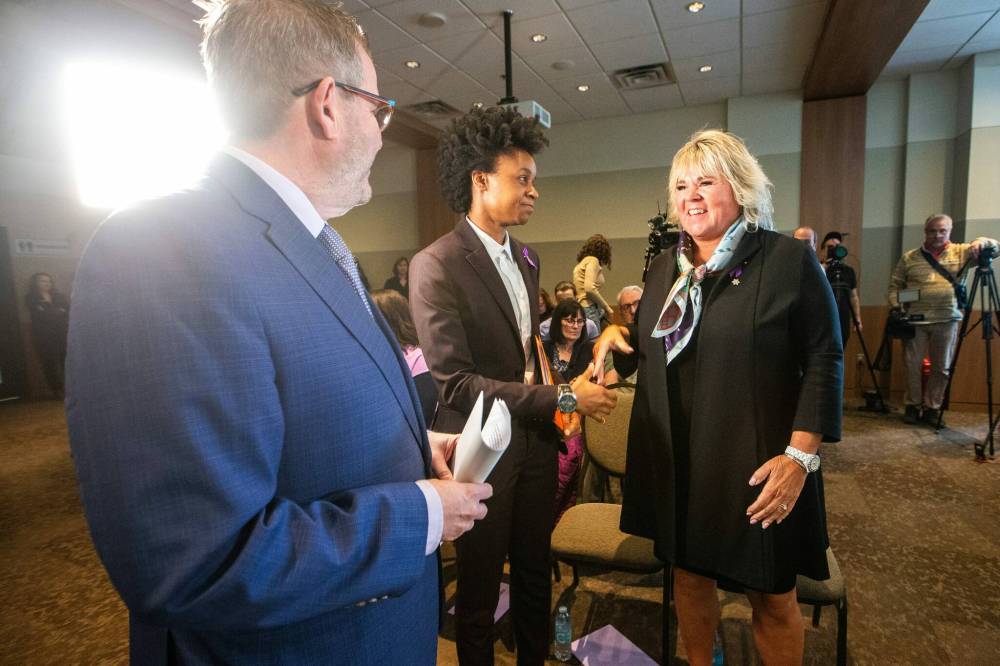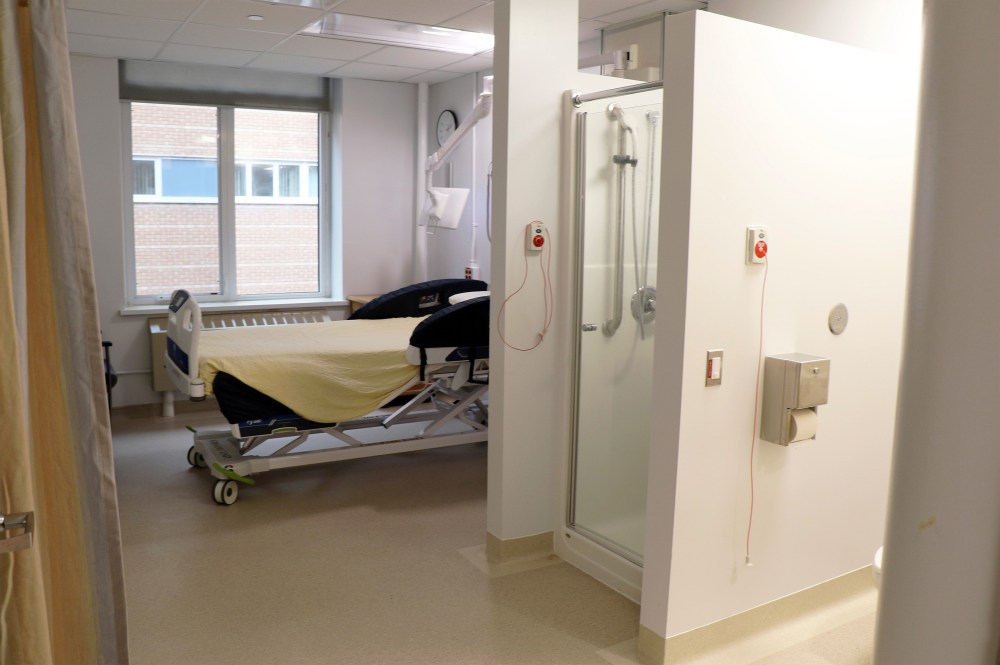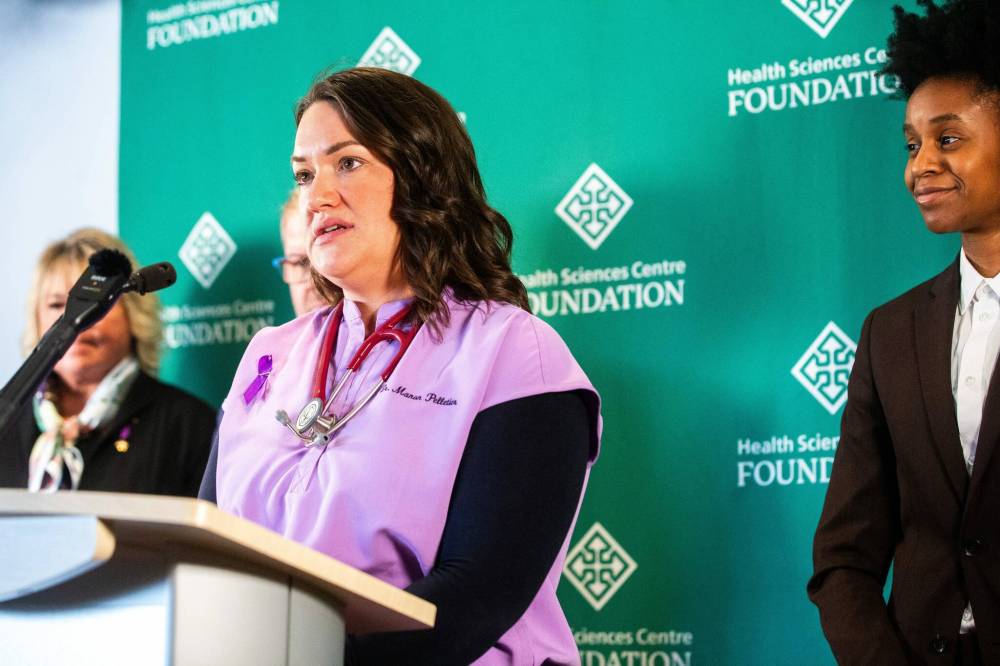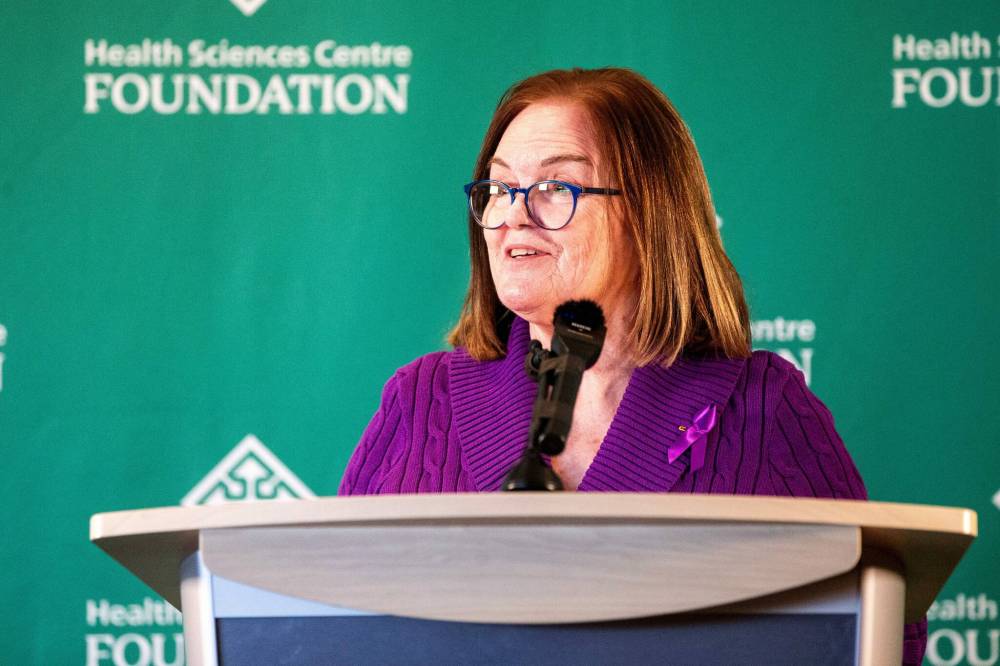New adult epilepsy monitoring unit at HSC will keep patients in province
Advertisement
Read this article for free:
or
Already have an account? Log in here »
To continue reading, please subscribe:
Monthly Digital Subscription
$19 $0 for the first 4 weeks*
- Enjoy unlimited reading on winnipegfreepress.com
- Read the E-Edition, our digital replica newspaper
- Access News Break, our award-winning app
- Play interactive puzzles
*No charge for 4 weeks then billed as $19 every four weeks (new subscribers and qualified returning subscribers only). Cancel anytime.
Read unlimited articles for free today:
or
Already have an account? Log in here »
For the first time in five years, patients with complex epilepsy don’t have to leave Manitoba when they need medical monitoring.
A new, four-bed adult epilepsy monitoring unit has been opened at Health Sciences Centre to replace the two-bed unit that closed in 2019. The unit opened its doors in January and is expected to become fully operational over the next few months for patients who need specialized testing and who need to be monitored in case of seizures while they switch medications or while medical staff determine why medications aren’t working and whether the patient is a candidate for brain surgery.
Since 2019, about 50 patients have been sent out of Manitoba because they need urgent monitoring or surgery to treat epilepsy. Another 200 patients are on a wait list for this care, which was previously not available in Manitoba because of staff shortages and obsolete equipment.

“We never should have been in a position in Manitoba where residents of this province with epilepsy did not have access to this care in their own province, and since 2019 under the previous government, that’s what’s been happening,” said provincial Health Minister Uzoma Asagwara.
The province is spending $2.3 million in capital funding and $2.5 million in annual operating costs on the new monitoring unit. A separate recovery unit for neurosurgery patients has also been established with $500,000 in donations to the HSC Foundation. That unit opened in December. The minister made the announcement on the HSC campus Tuesday, which was Purple Day for international epilepsy awareness.
Currently, adults with epilepsy who need surgery have to go out of province. The monitoring and surgical step-down recovery units are steps toward offering those surgeries for adults at HSC, said Dr. Manon Pelletier, the hospital’s chief medical officer.
The monitoring unit is equipped with “leading-edge equipment” and additional staff — including nurses and electroencephalographic (EEG) technologists — and is expected to benefit about 7,000 of the 23,000 Manitobans with epilepsy.
She said the complement of epilepsy specialists and surgeons at HSC is “in good shape.” One surgeon is performing pediatric epilepsy surgeries, and another is being actively recruited with a specific candidate in mind.
The new units “will allow us to provide a level of care to epilepsy and neurosurgery patients that is orders in magnitude greater than what we have ever been able to provide before,” Pelletier said.

Equipment failures and a lack of staff forced the closure of the two-bed monitoring unit in 2019. Travelling out of province was not ideal for patients with urgent epilepsy cases, Pelletier said.
“Certainly, it’s not ideal, and we’re really, really happy and excited that these patients don’t need to travel for this care anymore.”
A new, expanded provincial epilepsy program was announced by the previous Progressive Conservative government but didn’t materialize until nearly two years later. The Tories made funding announcements for a monitoring unit and comprehensive epilepsy program in 2021 and 2022.
Following Tuesday’s announcement the PC caucus issued a statement saying the new unit was made possible by previous Tory investments.
The new monitoring unit was initially slated to be complete in summer 2023.

The union representing EEG technologists who run the tests required for epilepsy monitoring said they are still “desperately” in demand in Manitoba, not just at HSC but also at St. Boniface Hospital and in Brandon.
In a statement, Manitoba Association of Health Professionals president Jason Linklater said he will work with Shared Health to make sure the additional operating funding goes toward adequate staffing.
“Electroencephalographic (EEG) technologists who run these complex tests are still desperately short-staffed and in need of more help to keep up with the increased demand this reopened and expanded unit is already creating,” Linklater said.
“More must be done to retain and recruit these highly specialized professionals.”
Pat Trottier’s 49-year-old son Tom has epilepsy and an intellectual disability caused by a genetic condition. He spent time in the old monitoring unit and will be admitted to the new one in the coming weeks. During Tuesday’s announcement, Trottier thanked donors, and she said she’s grateful to medical professionals for their compassionate, expert care.

“As his parents, my husband and I want nothing more than for Tom to live his best and healthiest life. Thanks to HSC and Dr. Marcus Ng in particular, that’s what Tom is doing.”
katie.may@freepress.mb.ca

Katie May
Reporter
Katie May is a general-assignment reporter for the Free Press.
History
Updated on Tuesday, March 26, 2024 5:09 PM CDT: Adds new photo.
Updated on Tuesday, March 26, 2024 5:21 PM CDT: Adds PCs clarification and fixes typo



